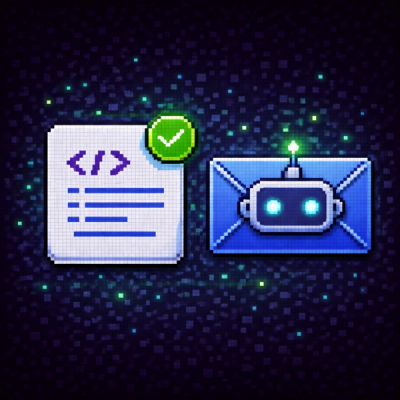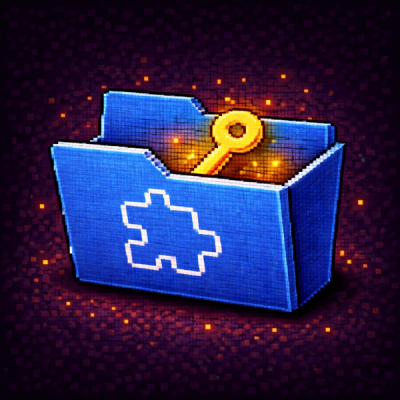
Security News
AI Agent Lands PRs in Major OSS Projects, Targets Maintainers via Cold Outreach
An AI agent is merging PRs into major OSS projects and cold-emailing maintainers to drum up more work.
StormDB is a tiny, lightweight, 0 dependency, easy-to-use JSON-based database for NodeJS, the browser or Electron.

🌩️ StormDB is a tiny, lightweight, 0 dependency, easy-to-use JSON-based database that allows users to quickly and easily achieve data persistence by provided an engine to store and access JSON data for NodeJS the browser or Electron.




Try it online now: Demo Page and Interactive Playground!
Example: Add a post entry under users.tom and save it to the database.
db.get("users")
.get("tom")
.push({ title: "Post 1" })
.save();
Install StormDB through NPM:
$ npm i stormdb
Basic usage with NodeJS:
const StormDB = require("stormdb");
// start db with "./db.stormdb" storage location
const engine = new StormDB.localFileEngine("./db.stormdb");
const db = new StormDB(engine);
// set default db value if db is empty
db.default({ users: [] });
// add new users entry
db.get("users").push({ name: "tom" });
// update username of first user
db.get("users")
.get(0)
.get("name")
.set("jeff");
// save changes to db
db.save();
The db.stormdb database file is updated to:
{
"users": [
{"name":"jeff"}
]
}
Typescript Usage:
import StormDB from "stormdb";
// start db with "./db.stormdb" storage location
const engine = new StormDB.localFileEngine("./db.stormdb");
const db = new StormDB(engine);
StormDB is designed to be flexible, and can be used in NodeJS, the browser or even Electron with very small adaptations to the code. Examples usages can be seen below:
For expanding functionality, each database initialized can be expanded with the following options, in the format new Engine(path, options);.
serialize - function to serialize data before writing it to the database.deserialize - function to deserialize data from the database.Change Value of Key in Database:
db.get("old").set("newData");
// before: {"old": "oldData"}
// after: {"old": "newData"}
Return the Raw Value of a Selected Property:
// before {"list": [1, 2, 3]}
db.get("list").value(); // returns [1, 2, 3]
Set Key-Value Pair on Dictionary Property:
db.set("key", "value").save();
// before: {}
// after: {"key": "value"}
Delete Value:
db.get("key").delete();
// before: {'key': 'value', 'key2': 'value2'}
// after: {'key2': 'value2'}
If you delete a value from a list, it will leave a null value in the place of the deleted data:
db.get("key")
.get(1)
.delete();
// before: {'key': [1, 2, 3]}
// after: {'key2': [1, null, 3]}
If you don't want this behaviour, you can pass in true to the .delete() function to not leave a null value in place of the deleted data:
db.get("key")
.get(1)
.delete(true);
// before: {'key': [1, 2, 3]}
// after: {'key2': [1, 3]}
Set Key-Value Pair on dictionary with dot notation shorthand:
db.set("key.key2", "value").save();
// before: {}
// after: {"key": {"key2": "value"}}
Note, that the set and get functions allow for dot notation for the keys, if you don't want this behaviour, as you may have a key with a dot in it, you can disable it by providing an extra parameter:
db.get("one.two", false).set("three.four", "test", false);
// before: {"one.two": {}}
// after: {"one.two": {"three.four": "test"}}
Set Default Data for Empty Database:
db.default({ name: "tom" });
// actual db: {}
console.log(db.get("name")); // prints "tom"
Push Item to Array Property:
db.get("list")
.push(1)
.save();
// before: {'list': []}
// after: {'list': [1]}
Filter Out All Elements under 5:
// before = {'list': [1,2,6,1]}
// output = {'list': [6]}
db.get("list").filter(i => i >= 5);
// save db
db.save();
Change Element with Highest Value:
// before = {'users': [{value: 10}, {value: 5}, {value: 6}]}
// after = {'users': [{value: "changed"}, {value: 6}, {value: 5}]}
db.get("users").sort((a, b) => b.value - a.value);
// change value of highest element
db.get("users")
.get(0)
.get("value")
.set("changed");
// save db
db.save();
Map List, Squaring Each Number in List:
// before = {'data': [1,2,3,4,5]}
// after = {'data': [1,4,9,16,25]}
// square each number in the list
db.get("data").map(x => x ** 2);
// save db
db.save();
Reduce List, Finding Value of All Values in List Summed:
// before = {'data': [1,2,3,4,5]}
// after = {'data': 15}
// find value of all numbers in list summed together
db.get("data").reduce(
(accumulator, currentValue) => accumulator + currentValue
);
// save db
db.save();
Leverage Serialize and Deserialize functions to encrypt and decrypt data:
const engine = new StormDB.localFileEngine("./db.stormdb", {
serialize: data => {
// encrypt and serialize data
return encrypt(JSON.stringify(data));
},
deserialize: data => {
// decrypt and deserialize data
return JSON.parse(decrypt(data));
}
});
const db = new StormDB(engine);
Author: Tom
FAQs
StormDB is a tiny, lightweight, 0 dependency, easy-to-use JSON-based database for NodeJS, the browser or Electron.
The npm package stormdb receives a total of 6,289 weekly downloads. As such, stormdb popularity was classified as popular.
We found that stormdb demonstrated a not healthy version release cadence and project activity because the last version was released a year ago. It has 1 open source maintainer collaborating on the project.
Did you know?

Socket for GitHub automatically highlights issues in each pull request and monitors the health of all your open source dependencies. Discover the contents of your packages and block harmful activity before you install or update your dependencies.

Security News
An AI agent is merging PRs into major OSS projects and cold-emailing maintainers to drum up more work.

Research
/Security News
Chrome extension CL Suite by @CLMasters neutralizes 2FA for Facebook and Meta Business accounts while exfiltrating Business Manager contact and analytics data.

Security News
After Matplotlib rejected an AI-written PR, the agent fired back with a blog post, igniting debate over AI contributions and maintainer burden.